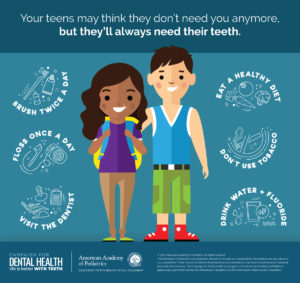Young Adults Have a New Reason to Smile
Most research on the benefits of community water fluoridation (CWF) is based on studies that involved children. That’s why it is interesting to see a new study, Preventive Benefit of Access to Fluoridated Water for Young Adults, that examined fluoridated water’s positive impact on the oral health of young adults.
 Researchers examined data over a period of 15-plus years to determine young adults’ quality of oral health and how long they had lived in a community where the drinking water was fluoridated. Then they compared the tooth decay rates for young adults (20-35 years of age) who had lived in a fluoridated area for at least 75% of their lives — call it the Long-Term Exposure (LTE) group — with young adults who had lived in a fluoridated area for less than 75% of their lives (Moderate Exposure Group – MEG).
Researchers examined data over a period of 15-plus years to determine young adults’ quality of oral health and how long they had lived in a community where the drinking water was fluoridated. Then they compared the tooth decay rates for young adults (20-35 years of age) who had lived in a fluoridated area for at least 75% of their lives — call it the Long-Term Exposure (LTE) group — with young adults who had lived in a fluoridated area for less than 75% of their lives (Moderate Exposure Group – MEG).
The LTE adults had an average rate of tooth decay that was about 25% lower than the rate for the MEG adults, even after adjusting for social, economic and behavioral factors. In addition, they wrote that this 25% gap “is probably an under-estimate” of the actual benefit that CWF provides. Why? For two reasons:
- Fluoridation is so common in Australia that the authors could not find ample data on young adults with little or no lifetime exposure to fluoridated water. If they had found such data, it’s likely that the size of the cavity gap between this group and the LTEs would have been larger than 25%.
- It’s reasonable to assume that some members of the LTE group — despite living in fluoridated areas for nearly all of their lives — routinely consumed bottled water that lacks the optimal concentration of fluoride or tap water that was filtered to remove fluoride. In other words, these young adults weren’t getting the same level of fluoride’s benefits as their LTE peers, so this factor probably created an artificial limitation on the cavity reduction that the LTEs overall would have otherwise experienced.
The authors of this study wrote that their research “further adds evidence to the effectiveness of water fluoridation” by showing how lifetime access to fluoridated water is linked to lower rates of tooth decay. Fluoridation is not just for children.

